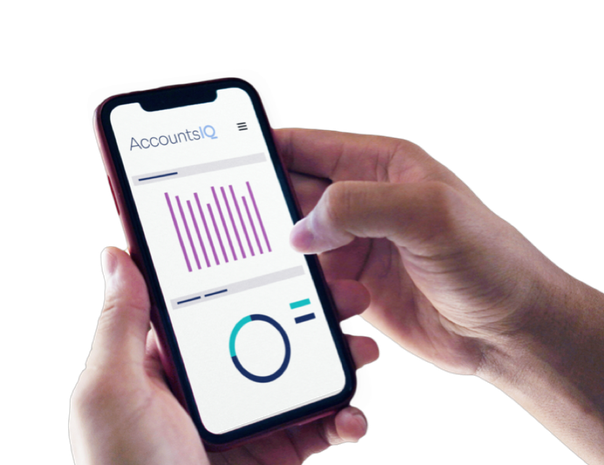Financial Reporting vs. Financial Accounting: What's The Difference?

Financial reporting software can transfer your financial reporting and accounting into a much easier task by keeping all of your information up to date and in one place. Let’s explore how this can be implemented across financial accounting and reporting.
What is financial reporting?
Financial reporting is the process of tracking, analysing and reporting your company’s financials. Reporting focuses on surveying the information you’ve gained through accounting processes. This analysis enables your business to assess your financial position, evaluate past performance and forecast future performance. Essentially, reporting takes a more overarching view of a business's financial position, which can help identify any areas of concern or strength. There are different types of financial reports, including:
- Cashflow forecast — one of the main objectives of financial reporting is cashflow forecasting, which takes a short to medium-term view of cashflow. This ensures that a business is maintaining a strong cash flow without any immediate concerns.
- Sales forecast — this financial reporting shows where future sales are expected to come from. This focuses on the customer pipeline, looking at the likelihood of conversion and adding value to the business.
- Risk reporting — reporting on potential present or future financial risks is valuable information that the wider business should be aware of. This will help safeguard against any future potential financial pitfalls.
- OKR (objectives & key results) reporting — reporting on future objectives and key results can help boost focus within the business, making future goals both clear and achievable.
What is financial accounting?
Financial accounting focuses on collecting a business's financial data in preparation for reporting, and keeping track of income and expenses. A central aspect of financial accounting is collecting key data, including receipts, invoices and reports that relate to business income and expenses. Accounting also involves maintaining and managing financials whether this is done manually or via cloud accounting software. Some key accounting roles include:
- Collecting financial data on income and expenses.
- Managing the general ledger to keep all transactions in one place.
- Generating the income statement, balance sheet and statement of cash flow.
What are the differences between financial reporting and financial accounting?
So, what are the key differences between financial reporting and accounting? And how might you use them in your business? Let’s explore some key differences below:
- Storing vs. analysing — accounting is for generating and storing financial information to be later analysed via financial reporting.
- Compiling information — financial reporting is for compiling all information, which isn’t possible with financial accounting.
- Accounting rules — with financial accounting, specific rules need to be followed in order to remain consistent and keep business accounts running smoothly. If rules aren’t followed, calculations can be completely disturbed, which results in inaccurate financial reports.
- Forecasting — financial reporting focuses on forecasting future finances and influencing future expenditures. Accounting gathers this information so that it can be analysed with reporting in the future.
The key objectives of financial reporting and accounting also differ from one another:
Accounting
- Keeps a record of financial history
- Provides a picture of a company’s financial position
- Gathers financial information in an easy-to-understand format
Reporting
- Predicts the financial future
- Analyses and interprets a company’s financial position
- Focuses on cash flow and economic value
Is financial accounting or financial reporting more helpful for businesses?
Both financial accounting and reporting are important for your business and each serves its own purpose to shed light on your business finances. I, in fact, they go hand in hand. Financial accounting is vital for the day-to-day running of a business. Keeping books up to date and maintaining consistent processes is key to keeping track of income and expenses and being able to prepare reports.
Financial reports are important because they can communicate to the wider business and investors how a company is performing. They can also help businesses to plan ahead, predict future outcomes and learn from past mistakes. Stability and consistency lie at the heart of a successful business in regard to financials. Both financial reporting and accounting are vital components of this.
Speak to one of our experts to see how AccountsIQ can transform your finance function
Get in touch



